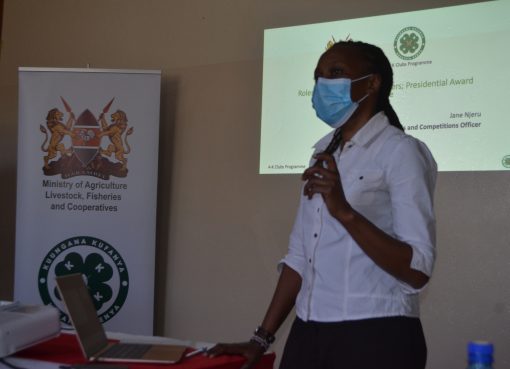Nakuru County Governor Susan Kihika has committed to spend Sh1 billion annually to provide micro, small and medium enterprises (MSMEs) with access to affordable credit.
Ms. Kihika said her administration will work closely with the County Assembly to develop and deploy a robust financial services consumer protection policy and legal framework that will protect MSMEs from exploitation by some lenders.
She stated that the money that will be channeled through the County Enterprise Fund will also facilitate the revival of small businesses and cooperatives in the County affected by the Covid-19 pandemic.
To ensure prudent utilization and investment of funds, only those who have gone through the prescribed training will access the money.
“Funds from the kitty will be available to the Boda bodas, Mama mbogas and transport operators. MSMEs contribute 85 per cent of non-farm jobs, which translates to 15 million out of the 18 million Kenyan workforce. The sector, absorbs nine out of 10 of the young people joining the workforce, 750,000 on average, while the formal corporate economy barely absorbs 50,000,” noted the Governor.
Describing the sector as a critical plank of Kenya’s economy, Ms. Kihika added that the small business sector makes a huge contribution on multiple fronts — fostering innovation, creation of new markets and consumers, a higher tax base, generation of employment and in effect, alleviation of poverty.
“We are keen on this sector as it speaks directly to the core of our economy. The country is alive to the fact that this segment is what drives the economy and therefore requires to be fully supported,” noted Ms. Kihika.
Small and medium-sized enterprises are the lifeblood of Kenya’s economy, constituting about 98 per cent of all the businesses in the country and have employed about 14.9 million Kenyans.
The Governor indicated that the County Government would continue exploring the interest sharing, and guarantee model for MSMEs with financial institutions to facilitate credit to catalyze the business growth of the entrepreneurs and enable economic recovery.
The County Government in partnership with Kenya Commercial Bank (KCB) has already set up a Sh800 million kitty to finance MSMEs hard hit by Covid-19 pandemic through the County Enterprise Fund.
KCB has signed a partnership agreement with the County Government of Nakuru, under which the county has set aside Sh52 million as interest subsidy and credit guarantee.
In this case, the government will pay part of the interest (5 percent) while business owners and/or cooperative societies will pay the balance of 7.5 percent.
KCB will in turn provide affordable facilities to the enterprises and cooperative societies that have been affected by the pandemic.
Ms. Kihika stated that small businesses faced the greatest risk from economic setbacks caused by global outbreak of Covid-19 adding that it was only through strategic partnerships that the county government can support businesses weather the crisis.
Small and medium-sized enterprises (SMEs), are officially defined by the government of Kenya (GOK, 2005) as business that engage between 1-99 employees, cover a range of establishments in almost all sectors of the economy; they operate formally or informally, seasonally or year round and are located in a number of areas including markets, streets, households or mobile.
Official statistics show that the value of SMEs output is estimated at Sh3,371.7 billion against a national output of Sh9,971.4 billion representing a contribution of 33.8 per cent in 2015.This was an incredible rise from 13 per cent recorded in 1993.
Ms. Kihika noted that SMEs played a critical role in the country’s economy by inventing new products and approaches, subjecting existing businesses to competition.
Data from Kenya National Bureau of Statistics (KNBS) shows 49.2 per cent of licensed SMEs had a monthly turnover of less than Sh50, 000, while 35.7 per cent recorded a monthly turnover of between Sh50, 000-1,000,000. Only 0.2 per cent of these businesses had a monthly turnover greater than Sh1 million.
The Governor pointed out that SMEs have become attractive employers to majority of fresh graduates due to the thin job market.
According to a report by Deloitte, “Kenya Economic Outlook 2016”, SMEs are hindered by inadequate capital, limited market access, poor infrastructure, inadequate knowledge and skills and rapid changes in technology.
A survey by the Kenya National Bureau of Statistics released early this year indicates that approximately 400,000 micro, small and medium enterprises do not celebrate their second birthday.
Few reach their fifth birthday, leading to concerns of sustainability of this critical sector.
Nakuru has the highest number of registered small businesses at 154,500, according to latest estimates by the economics section of the Central Region Economic Block (CEREB) secretariat. It is followed closely by Kiambu at 150,350 and Meru at 137, 379. Nyeri and Murang’a counties are in the middle of the pack with 59,000, and 42,200 respectively.
By Anne Mwale and Charloth Chepkemoi





